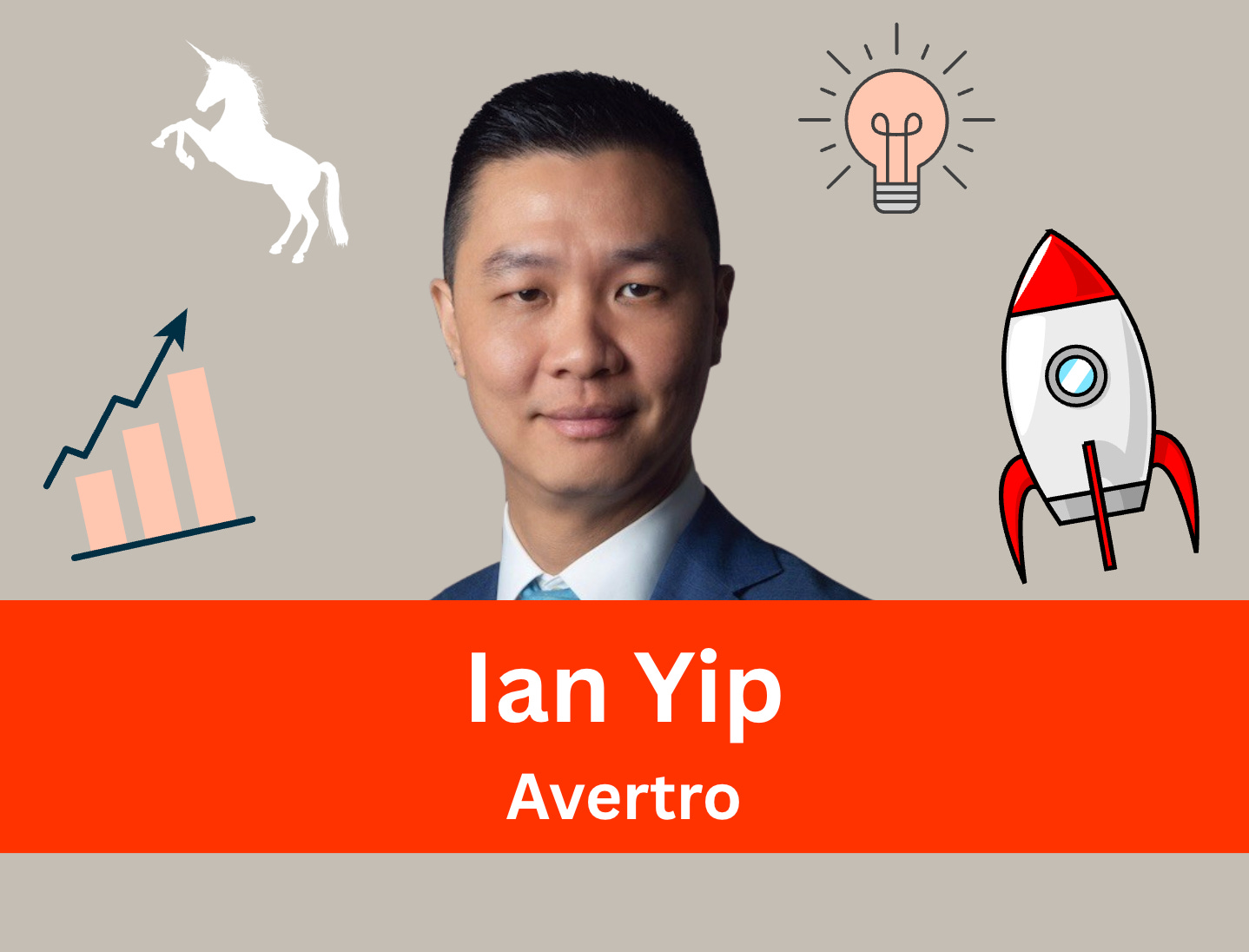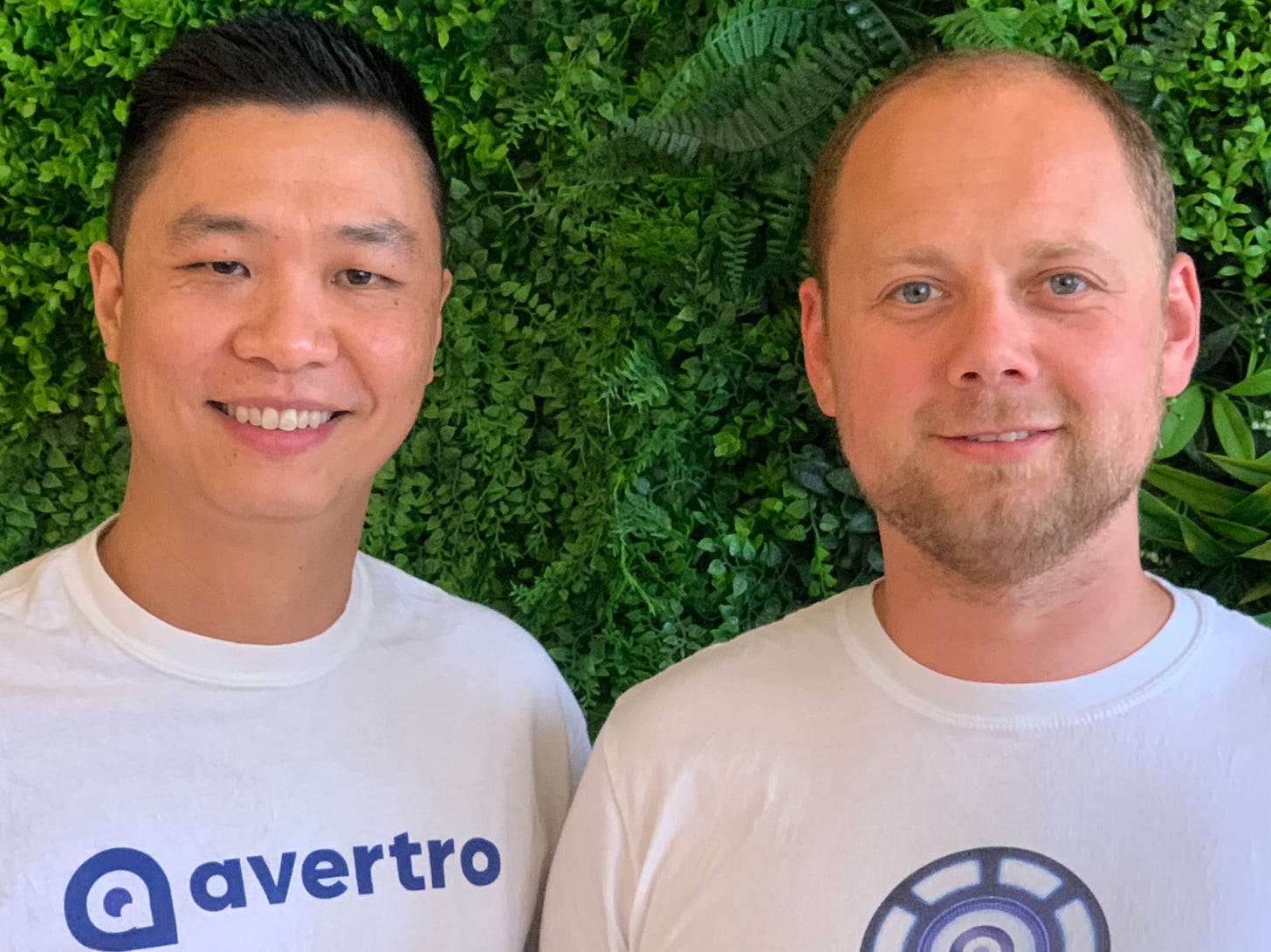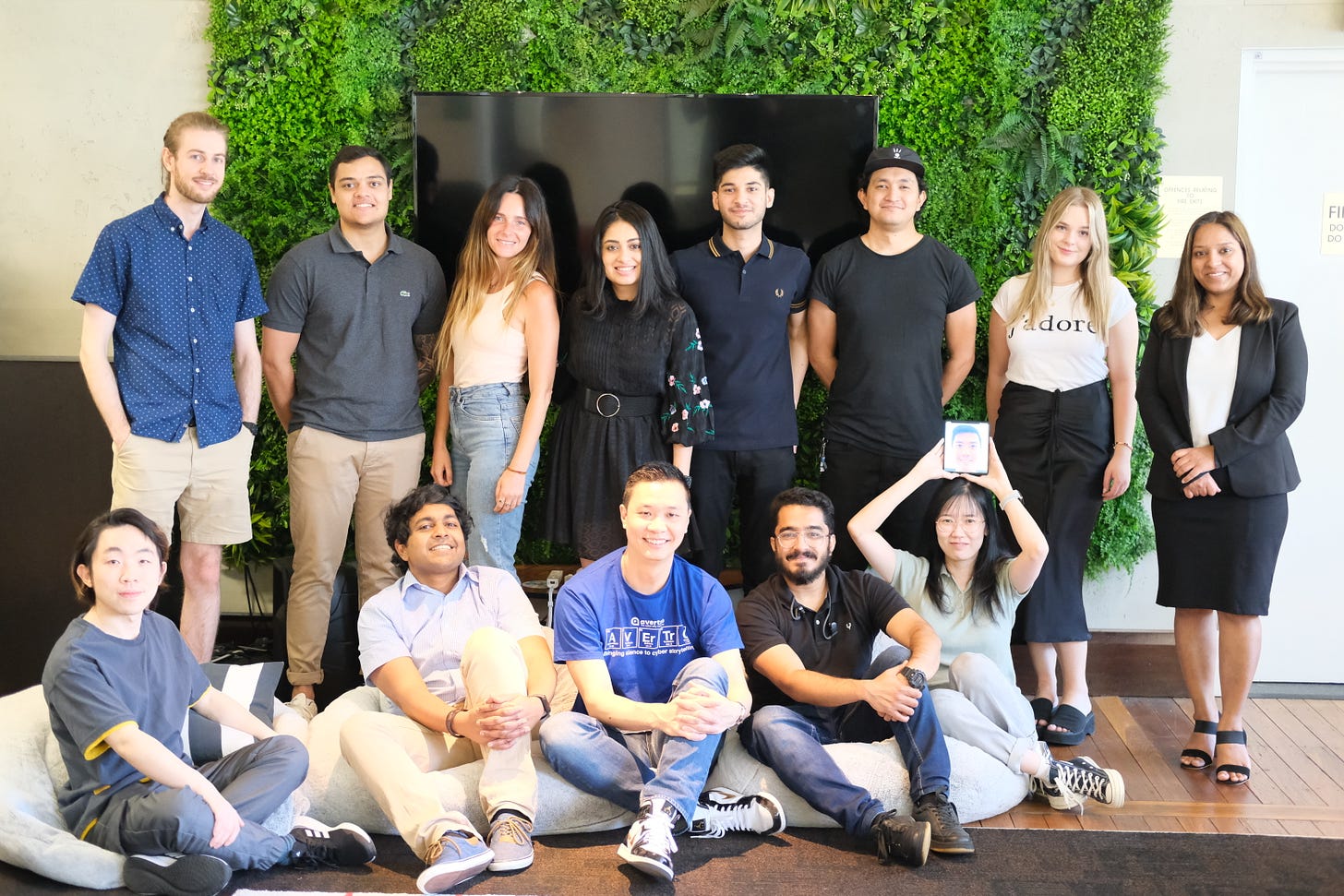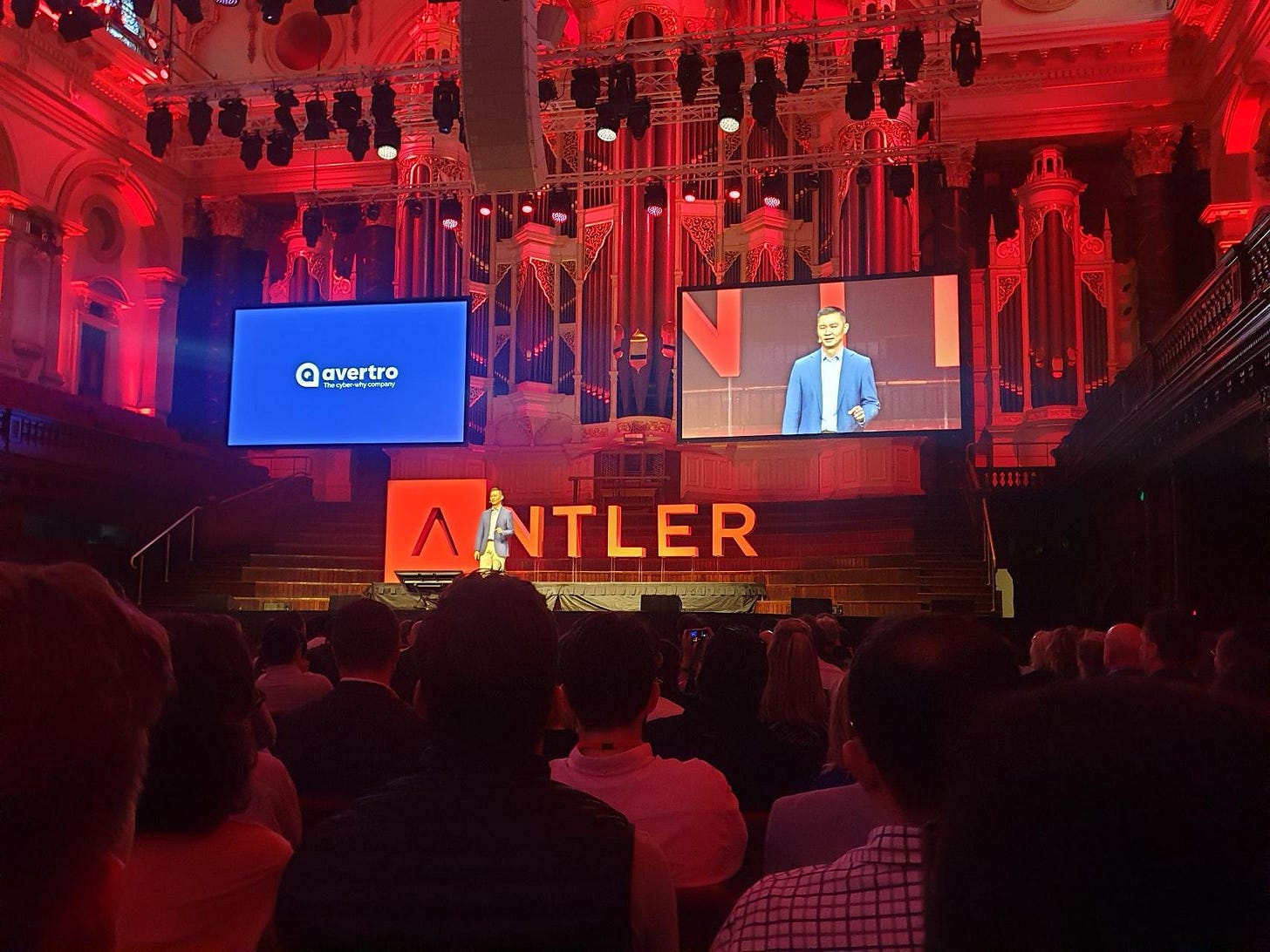From Corporate Life to Cybersecurity Founder
Building Avertro through cofounder drama and a financial crisis.
👋 Welcome to Valley of Doubt, a free weekly newsletter that goes deep into founder stories from the early days of startups. 🚀
Ian Yip is the founder and CEO of Avertro, an Australian cybersecurity startup that helps organisations automate their cyber resilience and regulatory compliance processes. A software engineer by training, Yip spent years in the corporate world at companies like IBM and McAfee before taking the entrepreneurial leap.
In this interview we dig into:
The reality of building product - Why it took him four and a half years to be confident his startup would work.
Learning from failure the hard way - How his first startup crashed, and why he completely flipped his approach the second time around.
Surviving a crisis - The brutal financial crunch that forced him to cut staff hours and salaries, and how fighting it together forged his core leadership team.
The co-founder breakup that didn't kill the company - How losing his technical co-founder two years in became a blessing in disguise.
SH: Tell me a little about Ian.
IY: I've always been a builder at heart. I hold a software engineering degree, but I did the responsible thing when I graduated and entered the corporate world. I joined IBM, which, in hindsight, was a very long training course that allowed me to become a founder.
SH: What was it like working in the corporate world, knowing that your true passion was building your own thing?
IY: I was always looking for creative ways to make my corporate job a little easier. If it meant building something, I would build it. I finally immersed myself in the startup mindset while living in the UK. I started to live and breathe the blogs from Silicon Valley influencers, before they were even known as influencers! It's great to read about it, but they do romanticise it and don't actually get into the heart of entrepreneurship.
I started something when I moved back from the UK to Australia, but it failed. If I'm being blunt, it was because I built an MVP, but I lacked the skills to take it to market. I was not the same person back then. I needed to expand my experience and knowledge to understand how to achieve commercial success.
Build It And They Won’t Come
SH: Your first startup failed. Was there anything in particular you knew that you wanted to do differently the second time around?
IY: My first time I followed the philosophy of "build it and they will come." It doesn't work that way. The realisation for me came a year into it, when I realised I didn't have the commercial and operational maturity to go and find the customers.
The second time around I understood the commercials and I understood what it took to go to market. This time around, we didn't build a single line of code before validating the problem. We spoke to a bunch of people. I deliberately went out to find the demand first before we built anything.
SH: Was it a long conversation with your partner about giving up a steady income to build something new?
IY: I think she understood where my mindset was and was happy to support me. It was more that some of the people around us were a challenge. I come from a background where everyone needs to be a doctor or a lawyer and have a steady income. So I think some of the pressure came from related parties.
"When is he going to get a real job, because this doesn't seem to be going anywhere!"
There was definitely some friction there, but ultimately she was supportive.
SH: Did you have a long financial runway to give you a chance to make it successful?
IY: The corporate world afforded me a good amount of personal runway. I had two to three years of personal runway when I started Avertro, which de-risked it for me somewhat.
When I first started Avertro my partner wasn't working. When we had our child she deliberately decided to take a break from her career, so for the first one to two years of Avertro's existence, we had zero income coming in. For the first 24 months we had to eat into savings to survive.
SH: What does Avertro do?
IY: Avertro is an end-to-end cyber resilience automation platform. We are the system that a security leader and other stakeholders use, to put it bluntly, justify their existence. We help them with regulatory, board, and executive accountability, governance, and all the necessary components to automate and drive that process.
When Your CTO Says "This Isn't Going to Work"
SH: I know you started Avertro with a co-founder. Tell me about how you found your co-founder and what that relationship was like? I know you then parted ways, so if you can talk a little bit about that as well?
IY: Finding a co-founder is one of the hardest things to do. One of the biggest brick walls I kept hitting when trying to start a company was finding a co-founder. A lot of people in my network, especially if you grew up in a traditional manner, don't want to start a company.
We are an Antler-funded company. The Antler process helps a bunch of people who are accepted into the Antler program to find co-founders. You're basically business speed dating through the program and I ended up fitting with my co-founder Roman.
Roman is a developer through and through and he built version one of Avertro pretty much on his own. He stuck around for around two years, but I think his lifestyle changes made it hard for him to continue. For his own personal reasons he needed to move back to Europe, and the different time zones made the dynamics challenging. He was gracious enough to say to me, "I'm going to tell you right now that I don't think it is going to work if I remain in Europe, and I'm not going to move back to Australia. So what's the best way forward?"
That was a stressful period for me personally. When things like that happen, you really don't know how it is going to end up. Founders not getting along and one co-founder leaving takes many companies down. We did try to see if we could find somebody to fill Roman's shoes, but ultimately they all had the wrong mindset.
We ended up promoting internally. One of our early engineers was a guy called Ani, and we hired him straight out of university as a junior engineer. In the absence of Roman, Ani was forced to grow up very fast. To his credit he took every challenge that I threw at him and excelled at it, and he became the reason that we never needed to replace Roman.
SH: You got your first customer within two weeks of releasing the MVP. How big was that first invoice you sent?
IY: That first customer was $20k I think.
SH: Did it feel good?
IY: Yes of course! A thousand dollars would have felt good. You just want to feel like somebody paid you something for it. We no longer charge people $20,000, but that was really great for a first invoice.
SH: Was there a point in Avertro where you thought, "Hey this thing might actually work!"?
IY: Probably only in the last 12 months, in terms of having objective data points to back up my unwavering belief as a founder!
SH: How long have you been going for?
IY: Five and a half years.
SH: So it took four and a half years to get to a point where you thought it might be working?
IY: Yep! The problem we're trying to solve is not a trivial problem. It was always going to take four years to get the product to the point where it was mature. We are now at the point where the product does everything it needs to, because we took the time to get it right, and we are seeing the benefits in our very sticky retention rates. Around 12 months ago we started to see all our metrics tick up and to the right.
I think one of the most rewarding things as a founder is when people start to talk positively about you. There's been a huge uptick of that in the last couple of months. Just the other day I got on a call with a potential customer and they started the meeting by saying to me,
"So I hear that you're the Mercedes-Benz of cyber software."
I sat there and thought, and then about five seconds later I said, "Yes we are!"
SH: If you think about that journey, for the first 75% of it you were not actually sure it was going to work. Was there a time where you wanted to quit and just go back and get a job?
IY: No never. Never. There were hard times, but it's never crossed my mind to stop. The question I asked myself when I decided to start a company was when you're retired at the age of 70, what will you be proud of when you look back? It was never going to be my corporate career.
Brought to you by Murmar.
The 2022 Survival Test
SH: You have mentioned a few times that there have been hard times. What are one or two that come to mind?
IY: The first one was Roman leaving, which was probably the first really hard point. That was really hard because that was the second moment post-COVID where we were sitting there and asking ourselves, how do we survive this? If we don't have the CTO to build this, how do we move forward?
I literally called my investors and asked them "What should we do?” To their credit, they all responded in the same way.
"Ian we've all started companies before, and we've all survived key people leaving. You'll be fine."
Instead of talking about fire and brimstone, I had the moral and financial support of that network of investors which I will always be immensely thankful for.
The other really difficult point was in 2022. The world was going through a hard time financially, and so 2022 was a difficult time for businesses in general. We were feeling it as people weren't spending money, and some of the renewals that we expected to come through didn't come through. There was one particular renewal in mid 2022 that we expected to come, but it failed to materialise because their budget was slashed. It meant we had an immediate cash flow problem.
I had to be quite direct to the team to let them know that we would all have to make sacrifices. If you want to stay around you've got to make sacrifices, and if you don't want to stay around then the door is that way. Some people took the door and I think that's the kind of thing that builds character in the people who choose to remain. I had to ask all the staff to take leave one day a week for the next six months, and some of the casuals had their days reduced.
But out of all that, I understood who would be able to fight for the survival of Avertro. The people who fought through that took every challenge presented to them. Many of them are now part of my leadership team.
SH: I imagine it was quite a bonding kind of experience for you all?
IY: We bring it up occasionally. Sometimes when we have a shitty day, we might pipe up with "Well at least it's not like 2022!" It's a shared experience that you will never forget for the rest of your life. There is an additional bond that forms every time you fight your way out of something like that, and the key people on our team were the ones who fought out of that together. It was never "oh it's your problem, you're the founder." We worked through it as a team.
SH: Let's talk about fundraising. How much of your time goes into raising capital?
IY: The least favourite part of my job as a founder is fundraising. If I could delegate one thing in my job, it would be fundraising. It is a necessity if you want to get to scale and become a unicorn, because it's very difficult to be a unicorn without venture capital.
The only way you raise money as an enterprise B2B business in Australia is to de-risk it for investors first. I love the Jeff Bezos quote where he talks about innovation in America.
"Why is America so good at churning out so much innovation and so many great world-leading companies? It has the best risk capital in the world and you need risk capital to be able to build world-changing companies."
Australia is not great at risk capital. Our investor ecosystem likes to de-risk everything to the nth degree, especially when they don't understand what they're trying to invest in. Which is why you see in Australia so many investments go into consumer companies or product-led growth startups, because we can understand those more easily.
SH: How many times have you raised capital for Avertro now?
IY: We've raised twice. The pre-seed was in 2020, and then we raised a seed in 2022. Which we've never announced publicly, but I guess it's okay to say it now!
SH: Do you remember what stage the company was at for that pre-seed round? How many customers did you have?
IY: I think when we closed the pre-seed we had one customer. For the seed in 2022, we were in double digits for customers and would have been in the low six figures for revenue.
The Easier Questions
SH: What's a book we should all read?
IY: Start with Why, by Simon Sinek.
SH: Can't we just watch the Ted talk?
IY: Hah. You can as a first step, and I'd say that's the easiest way to consume it. But if I think about life-changing things that have switched my thinking, that book is one of them.
SH: What is a band or artist we should all listen to?
IY: The Bee Gees. My favourite band of all time.
SH: Wow I would not have predicted that.
IY: I've not really been ready to admit that openly until probably the last couple of years! There's a lot about their music to appreciate. Because I'm musically trained, I can appreciate the musicality.
SH: Awesome. I mean if you love the Bee Gees, you should just rock it. My last question is what's a podcast we should all listen to?
IY: Diary of a CEO, by Steven Bartlett. He interviews leaders and they're very long podcasts. You'll sit there for two hours and watch it, but it's got a good variety of global leaders that he's interviewed.
SH: Thanks so much for your time Ian. Good luck with Avertro!






